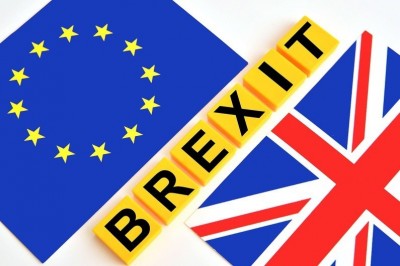Brexit On a Slow Track to Oblivion?

Prime Minister Theresa May’s support for Brexit is more rhetorical than real.
An audio recording leaked to London’s Guardian last May caught her as home secretary, saying “I think the economic arguments are clear. I think being part of a 500-million trading bloc is significant for us.”
I think, as I was saying to you a little earlier, that one of the issues is that a lot of people will invest here in the UK because it is the UK in Europe.
If we were not in Europe, I think there would be firms and companies who would be looking to say, do they need to develop a mainland Europe presence rather than a UK presence? So I think there are definite benefits for us in economic terms.
There are definitely things we can do as members of the European Union that I think keep us more safe.
Her view on Brexit as home secretary contrasts markedly with what she said as prime minister. “Brexit means Brexit,” she blustered. Britain won’t remain “half-in (and) half-out” of the EU.
We do not seek to hold on to bits of membership as we leave. The United Kingdom is leaving the European Union. My job is to get the right deal for Britain as we do.
Discussion about Brexit ignores its non-binding status. Parliament alone gets to decide if Britain remains in or leaves the EU.
Invoking Article 50 of the Lisbon Treaty is another matter entirely. It’s legally binding, unlike referendum voting. The Lisbon Treaty states:
1. Any Member State may decide to withdraw from the Union in accordance with its own constitutional requirements.
2. A Member State which decides to withdraw shall notify the European Council of its intention. In the light of the guidelines provided by the European Council, the Union shall negotiate and conclude an agreement with that State, setting out the arrangements for its withdrawal, taking account of the framework for its future relationship with the Union.
That agreement shall be negotiated in accordance with Article 218(3) of the Treaty on the Functioning of the European Union. It shall be concluded on behalf of the Union by the Council, acting by a qualified majority, after obtaining the consent of the European Parliament.
3. The Treaties shall cease to apply to the State in question from the date of entry into force of the withdrawal agreement or, failing that, two years after the notification referred to in paragraph 2, unless the European Council, in agreement with the Member State concerned, unanimously decides to extend this period.
4. For the purposes of paragraphs 2 and 3, the member of the European Council or of the Council representing the withdrawing Member State shall not participate in the discussions of the European Council or Council or in decisions concerning it.
A qualified majority shall be defined in accordance with Article 238(3)(b) of the Treaty on the Functioning of the European Union.
5. If a State which has withdrawn from the Union asks to rejoin, its request shall be subject to the procedure referred to in Article 49.
On Monday, Britain’s Supreme Court ruled (by an 8 to 3 majority) against fast-tracking Brexit, saying “the government cannot trigger Article 50 without Parliament authorising that course.”
It’s for them to decide, not the PM or UK voters. May’s spokesman said “(w)e respect the Supreme Court’s decision, and will set out our next steps to parliament shortly.”
Labour party leader Jeremy Corbyn said he won’t “frustrate the process for invoking Article 50. Instead he’ll seek to amend government legislation, saying:
Labour is demanding a plan from the government to ensure it is accountable to parliament throughout the negotiations and a meaningful vote to ensure the final deal is given parliamentary approval.
Politics alone will drive what’s coming, not the will of the people. Britain is no more democratic than America, nor are any other EU countries.
Government policy is to remain an EU member. If Brexit happens, it’ll be as surprising as Trump defying long odds to become US president.
Stephen Lendman lives in Chicago. He can be reached at [email protected].
His new book as editor and contributor is titled “Flashpoint in Ukraine: How the US Drive for Hegemony Risks WW III.”
http://www.claritypress.com/
Visit his blog site at sjlendman.blogspot.com.
Listen to cutting-edge discussions with distinguished guests on the Progressive Radio News Hour on the Progressive Radio Network.

